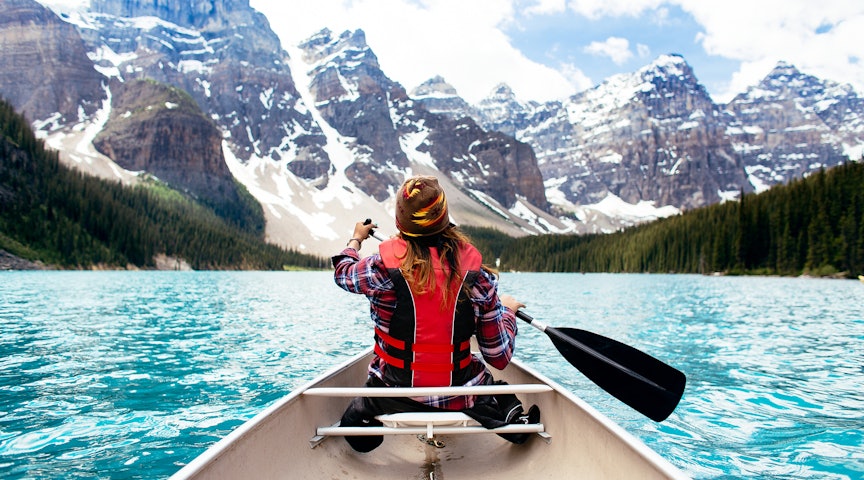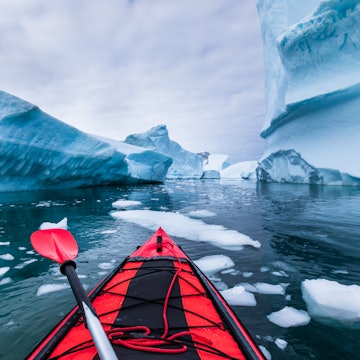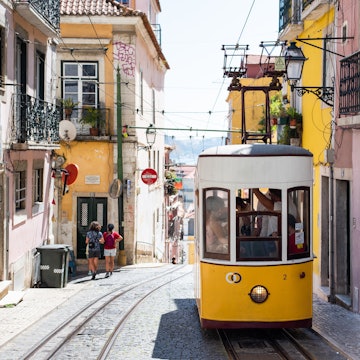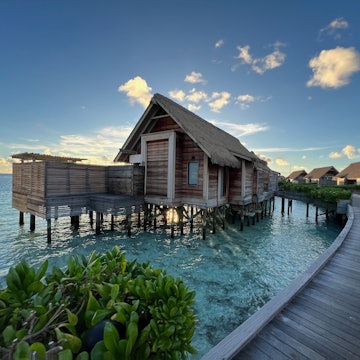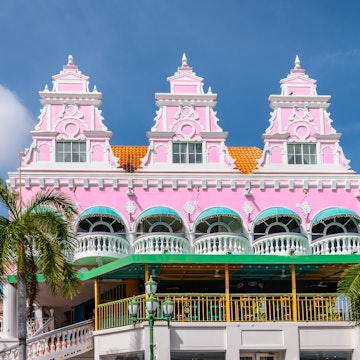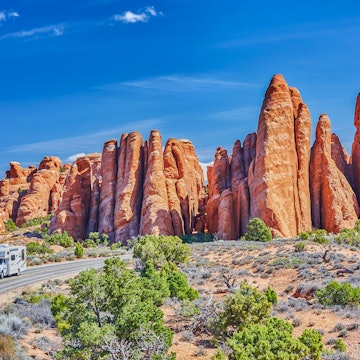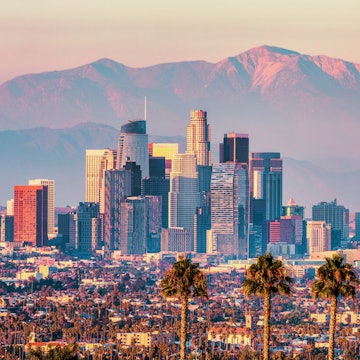
First-time guide to Edmonton, Alberta's capital city
Supported by

May 11, 2024 • 9 min read

Edmonton is full of fascinating corners – like this sci-fi spot in Terwillegar Park © 770 Productions / Design Pics / Getty Images
Edmonton does things big: it’s home to Canada’s largest sports and entertainment district, the largest stretch of urban parkland in North America, the oldest and largest fringe theater festival in North America and one of the largest shopping malls on the planet. But underneath that big, bold surface is a vibrant capital city with an unpretentious population and a rich and diverse culture.
Canada’s fifth-largest city and northernmost major metropolis is filled with so many fascinating places to explore that planning a visit can be a bit overwhelming. Where should I go? How can I get there? How can I experience the real culture of this place? This guide tackles those questions and provides practical advice on how to make the most of your first visit to Edmonton.
Edmonton is one of the best cities to visit next year. See our full list of Best in Travel 2025 winners.
What is the best time to visit Edmonton?
The summer months are the most popular time to visit – the city receives as much as 17 hours of daylight per day, and temperatures range between 20°C (68°F) to 30°C (86°F). It’s also the season when you can enjoy many of the most popular festivals, like K-Days in July or the Edmonton International Fringe Theatre Festival in August. Accommodations will cost more during the peak summer months. Edmonton can get quite cold in winter, with typical temperatures ranging between -5°C (23°F) and -15°C (5°F) and snowfall happening as early as November and as late as March. You shouldn’t be afraid of winter, though – it’s a great time to visit if you like skating, skiing, snowshoeing and fat biking.
One added bonus to a fall or winter visit is that you might get the chance to see the northern lights. The University of Alberta’s Aurora Watch website monitors aurora activity near Edmonton and can send you alerts. There are festivals year-round, too, so there’s really no bad time to visit. Flying Canoë Volant is a highlight of winter, and the International Children’s Festival in spring is great family fun. Accommodations also tend to cost less during the fall, winter and spring.

What is Edmonton best known for?
As the gateway city to Jasper National Park and the Canadian Rockies, Edmonton is a fast-growing city with a young population compared to other Canadian cities. It’s also known as Canada’s festival city because it hosts more than 50 festivals annually. And you may have heard of its biggest attractions: the beautiful North Saskatchewan River Valley and West Edmonton Mall (the biggest in North America). Edmonton is also a sports-loving city, home to the Edmonton Oilers NHL hockey team and the Edmonton Elks CFL football team. The city used to have the moniker “City of Champions” in honor of its sports teams.
Is it easy to get in and around Edmonton without a rental car?
A rental vehicle is the easiest and most convenient way to get around Edmonton, but you have plenty of other options. The city has a good public transit system with both buses and Light-rail Transit (LRT) services. Uber, taxis and bicycle rentals are also a possibility. If you want to get around on foot, Edmonton is a very walkable city.
How much time should I spend in Edmonton?
Ideally, you should have at least two or three days to explore Edmonton. It won’t be enough time to see everything, but you will be able to see some of the top attractions. If you only have one day, you’ll have time for one or possibly two attractions. Exploring West Edmonton Mall can take a full day, but you might be able to visit two smaller attractions in a single day. With three days, you could visit one of the attractions outside the city, like Elk Island National Park, the Ukrainian Cultural Heritage Village or Métis Crossing.
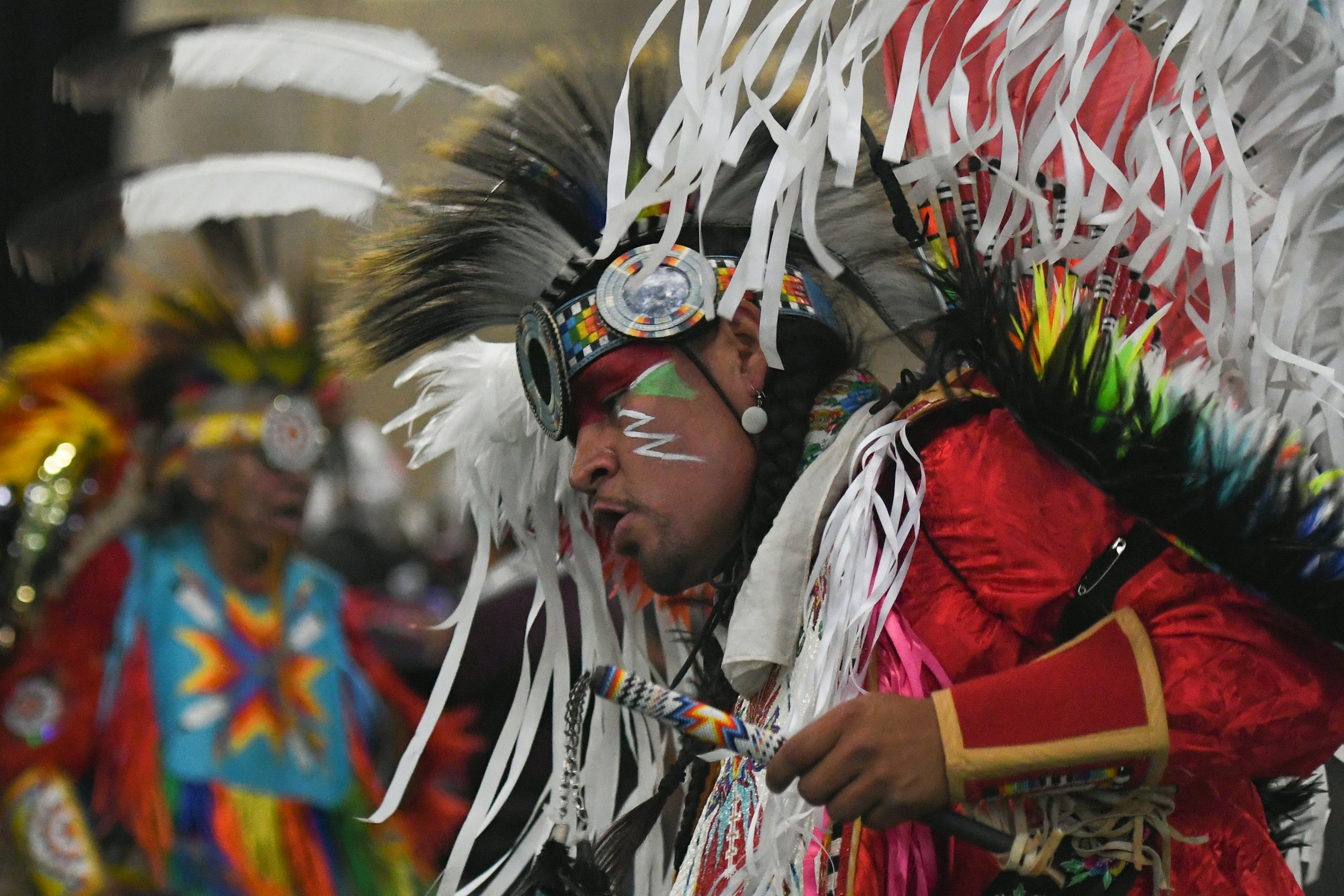
How much money do I need for Edmonton?
Compared to other cities, Edmonton is a bargain. Accommodation rates vary depending on the location and the season, but they tend to be higher in the downtown core. Unsurprisingly, you can find some deals if you book early and avoid peak-season travel. Major attractions may charge hefty fees, but there are a lot of free festivals and things to do. There are some great farmers markets and picnic spots if you want to save a buck and still enjoy high-quality local food.
Here are some average daily costs at peak season (in $CAD):
Downtown hotel $150-375 per room per night
Private double room in a hostel $65 per night
Coffee (Tim Hortons or similar) $2
Entrée at a midrange restaurant $25-35
Glass of wine $8-10
Museum admission $14-21
Public transit single ticket $2.75 within Edmonton, $5 from the airport to Edmonton
Cab fare from Edmonton airport to downtown $62
What food is Edmonton known for?
One of the best things about visiting a place is discovering unique local foods. Green onion cakes were introduced to Edmonton in 1978 when Siu To, an immigrant from northern China, began serving them in his restaurants. These pan-fried pancakes filled with scallions are crispy on the outside and chewy on the inside, and they are so beloved in the city that some have suggested they should be declared Edmonton’s official food. They are served at restaurants around the city and at many festivals, but try the original at Green Onion Cake Man restaurant.
Other foods that should make your must-eat list: perogies, donairs and Alberta beef. There’s a huge Ukrainian and Polish community in Edmonton and some amazing restaurants that make perogies fresh daily. Sample the goods at Uncle Ed's Ukrainian Restaurant, Taste of Ukraine, Shumka Ukrainian Foods or Widynowski's Sausage House. Next up is the donair, a uniquely Canadian food similar to a Greek Gyro with seasoned shaved rotisserie beef, veggies and special sauce wrapped in a pita. There are over 120 donair restaurants in Edmonton, and Marco's Famous, Swiss Donair and Top Donair are all good places to try it. Finally, Alberta is famed for its beef (there are more cattle than people in the province), and many restaurants serve up this local specialty with flair.
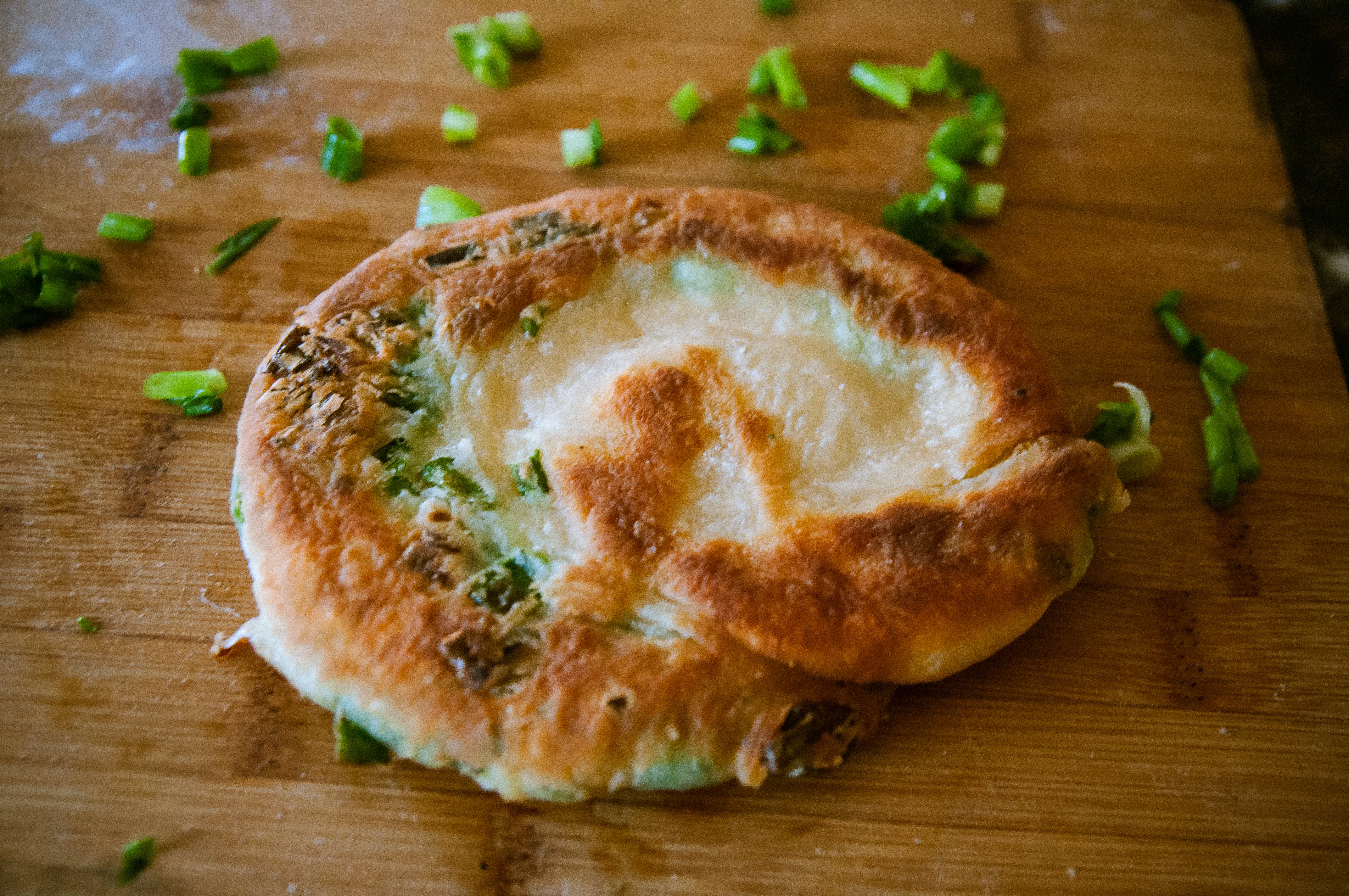
Where to eat in Edmonton
Edmonton’s food and drink scene is worth traveling for. Dynamic and always evolving, you’ll find some fantastic bakeries, ice cream shops, restaurants, breweries, pubs and bars. For breakfast or brunch, check out The Sugarbowl, where you'll find everything from fresh cinnamon buns to huevos rancheros and Belgian waffles. Duchess Bake Shop is the most famous French bakery in town, serving up amazing macarons, tarts, croissants and éclairs. Farrow Sandwiches is known for its uniquely delicious sandwiches, freshly brewed coffee and delicious baked goods.
Small-batch, hand-crafted ice cream is a thing in Edmonton, and there are several fantastic shops, including Made by Marcus, Kind Ice Cream and Yelo’d. For local prairie cuisine at its finest – including Alberta beef from an onsite butchery – go to RGE RD. For Asian-inspired food that’s meant to be shared, visit Baijiu, a trendy cocktail bar and eatery in a historical building. Also, take a brewery tour at Monolith, one of the only breweries in North America that offer barrel-aged beer. For cocktails and late-night snacks, check out Fu’s Repair Shop or Bar Clementine, two of the city’s trendiest spots. To get a taste of several different places, go on a food tour with Alberta Food Tours.
Experience Edmonton’s must-see attractions
There are many attractions in Edmonton, and some of them are iconic. It’s hard not to be blown away by West Edmonton Mall. Canada’s largest shopping and entertainment complex has more than 800 stores, a water park, a theme park and much more. The Royal Alberta Museum is Western Canada’s largest museum – a great place to explore history. See 6000 pieces of art from Alberta and around the world at the Art Gallery of Alberta. Experience Canada’s national winter sport at an Edmonton Oilers hockey game at Rogers Place. Enjoy a performance of the Edmonton Symphony Orchestra at the Winspear. There are several places to enjoy live theater, but the Citadel Theatre is the city’s premiere facility. Just outside the city, you can enjoy hiking, canoeing, wildlife watching and other outdoor adventures at Elk Island National Park. Herds of bison, elk and more than 250 bird species are found in the park.

My favorite thing to do in Edmonton
I love exploring the North Saskatchewan River Valley, often referred to by locals as the Edmonton River Valley – the city’s pride and joy. Take a free ride on the 100 Street Funicular and embark on an adventure through the largest stretch of urban parkland in North America, an area 22 times bigger than New York City’s Central Park. There are 20 major parks in the river valley, many attractions and more than 99 miles (160km) of trails to explore by running, biking, snowshoeing, cross-country skiing or on a guided Segway tour; use this handy trail map for exploring. River Valley Adventure Co is the place to go for Segway tours, mountain bikes, stand-up paddle boards and other sports equipment rentals.
If you prefer to hit the water, grab a canoe or kayak and glide along the North Saskatchewan River. Canoe and kayak rentals and shuttle service are available at Edmonton Canoe.
Download the free app if you’re exploring the six-mile (10km) Edmonton Commonwealth Walkway to listen to one of five themed audio tours – Indigenous, history, family, river and winter. There are quite a few attractions in the Edmonton River Valley, including Snow Valley Ski Hill, Snow Valley Aerial Park, Fort Edmonton Park, the Edmonton Valley Zoo, Muttart Conservatory and the John Janzen Nature Center.
Attend a festival in Canada’s festival city
You could plan your entire trip around Edmonton’s festival schedule. Hosting more than 50 festivals every year, Canada’s Festival City celebrates everything from arts and culture to music, food and LGBTQIA+ pride. Check out the Explore Edmonton event calendar to see what’s happening during your stay. Some recommendations in summer include the Edmonton International Fringe Theatre Festival, Edmonton Heritage Festival, Edmonton International Street Performers Festival, Edmonton Folk Music Festival, K-Days, Edmonton Pride Festival and Cariwest. In winter, Flying Canoe Volant, Silver Skate Festival and Deep Freeze take the edge off cold days.
Discover the Indigenous side of Alberta’s capital city
Edmonton is located within Treaty No. 6 territory and within the Métis homelands and the Métis Nation of Alberta Region 4. The city has the second largest urban Indigenous population in Canada, and there are many unique opportunities to learn about Indigenous Edmonton. The Indigenous People’s Experience at Fort Edmonton Park is a multi-media experience that tells the stories and shares the cultures of the Indigenous Peoples of this region of Canada. To see the city from an Indigenous perspective, take a tour with Talking Rock Tours. Also consider making a visit to Métis Crossing, an 80-minute drive northeast of Edmonton, where you can learn about Métis culture and enjoy fun activities like paddling a voyageur canoe and taking a wildlife tour to see a sacred white bison.
Keep planning your trip to Alberta:
Go remote with the best of Banff and Jasper’s backcountry lodges
Add Canada's best experiences to your itinerary
Do your research with 12 things one local wants you to know about Canada
Time your adventure perfectly with the best times to visit Canada
Supported by Explore Edmonton
As a travel entertainment and inspirational media outlet, we sometimes incorporate brand sponsors into our efforts. This activity is clearly labeled across our platforms.
Funding for this story is provided by Explore Edmonton. All editorial views are those of Lonely Planet alone and reflect our policy of editorial independence and impartiality.
With sponsored content, both Lonely Planet and our brand partners have specific responsibilities:
-
Brand partner
Only provides financial support and their logo. Doesn't make revisions or approve the story.
-
Lonely Planet
We fully control the creative and editorial approach, just like any other featured story.
Take your Canada trip with Lonely Planet Journeys
Time to book that trip to Canada
Lonely Planet Journeys takes you there with fully customizable trips to top destinations–all crafted by our local experts.
